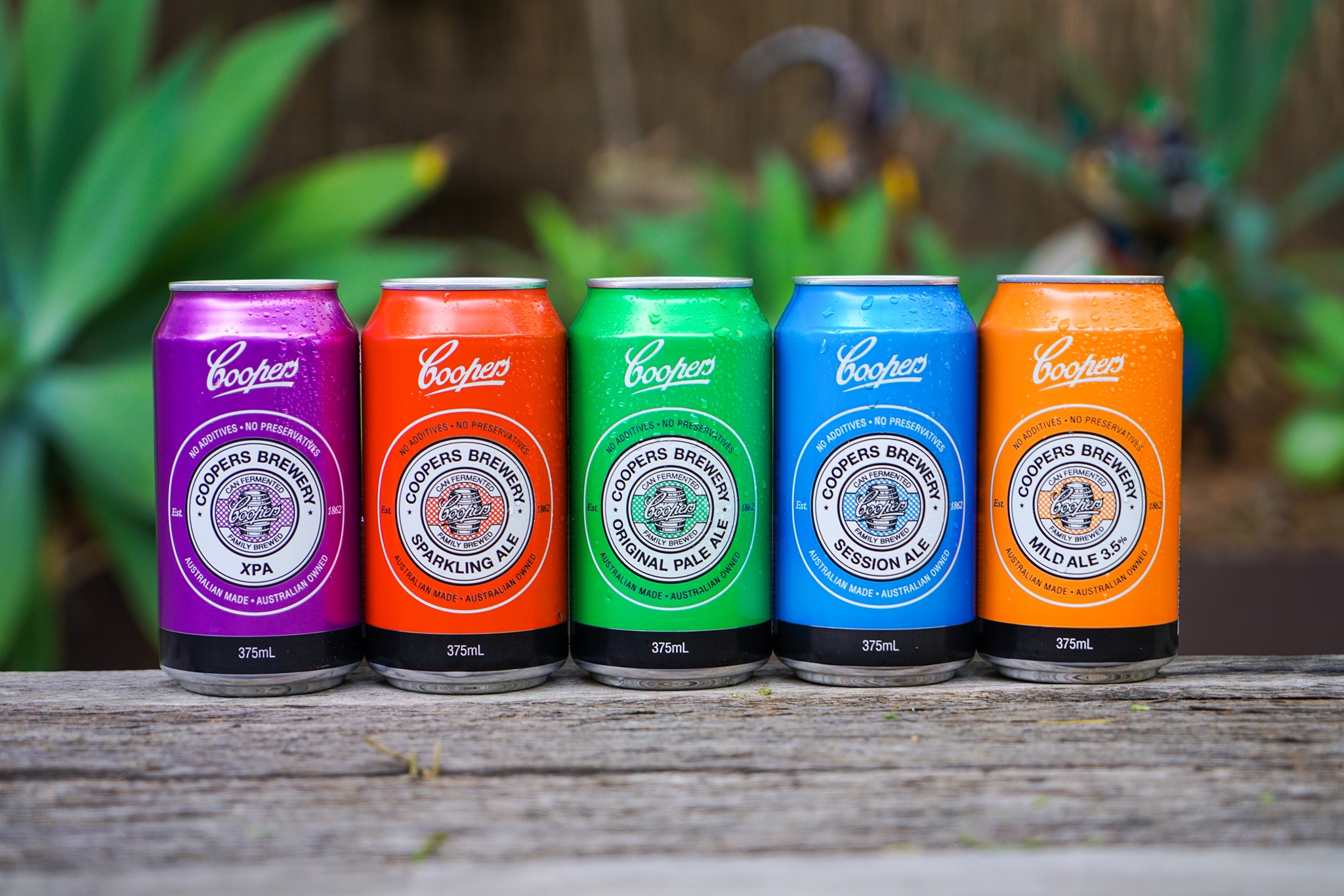
Coopers overcomes "lost opportunity" in late move to cans

Coopers Brewery faced technical challenges moving its traditional ales to cans but it has since overcome a lost opportunity, according to managing director, Dr Tim Cooper.
His comments on the Beer is a Conversation podcast followed the brewery’s recent announcement of expansion plans after a year of growth that saw increased beer sales across the country despite the pandemic.
In late 2018, Coopers suffered its first decline in 20 years, however, since moving to cans, the brewery has been on a growth trajectory.
Cooper attributed this success to the brewery packaging more of its beer in cans starting with its original pale ale in 2018. A version had been previously available in that format, labelled under the Dr Tim’s brand from 2004 as an experiment to see whether pale ale could be successfully packaged in cans.
Cooper told Radio Brews News the decision to increase its focus on cans was the catalyst in the brewery’s current growth trajectory.
“We were selling 5,000 cases a month of Dr Tim’s and we now sell about 60,000 cases a month of pale ales in cans. So it made a huge difference to the volume,” he explained.
“Of course some of that volume is taken away from the bottles, but when you add the cans and the bottles, there’s been a growth in Pale Ale.”
Retiring the Dr Tim’s brand name was also an important factor as Cooper explained.
“We definitely suffered as a result of not calling it Pale Ale because once we did call it Pale Ale, then particularly people from interstate were more prepared to buy the product,” he said.
Dr Cooper said the brewery has also help off heavily adopting cans because of the technical challenges of can conditioning the ales.
“We were just anxious about this whole process of natural conditioning in cans and apart from some craft brewers, we didn’t think anyone else in the world was really doing it way back then in 2004,” he explained.
“There’s just that anxiety about the fact that cans are relatively weak and you have to keep them fairly well protected until the carbonation is complete.”
Dr Cooper discussed the challenges the brewery saw in ensuring that there was no difference in flavour between the can and bottled format for its classic beers, including Sparkling Ale, however, he said that it was a lost opportunity for the brewery overall.
“I think it was a lost opportunity but having said that, when we introduced Mild [Ale], we made the decision to put that in cans at the same time as bottles because we thought, ‘since we’re introducing a new product, we could say, as consumers you decide if you think you prefer one over the other’.”
The craft beer industry choosing to embrace cans has also contributed to the brewery’s growth, according to Cooper.
“What we have benefitted from is the craft industry has graciously embraced the idea of beer in cans. I think that’s helped us enormously,” he said.
When asked whether retailer pressure is a factor for breweries to utilise the can format, he explained that it depends on the brand.
“I think the retailers will favour having both formats if the brand is strong enough,” he said.
“So in our case, that safely covers pale ale and sparkling ale and then with our lager beers, they struggled to compete with the mainstream products of the two big brewers.
“Where there’s not deemed to be enough volume going through being processed in stores, then quite often the retailers would say they prefer to have just the bottles and not the cans unless it is a canned only variant.”
Listen to the full interview with Dr Tim Cooper as part of this week’s Beer is a Conversation podcast.



